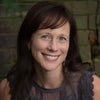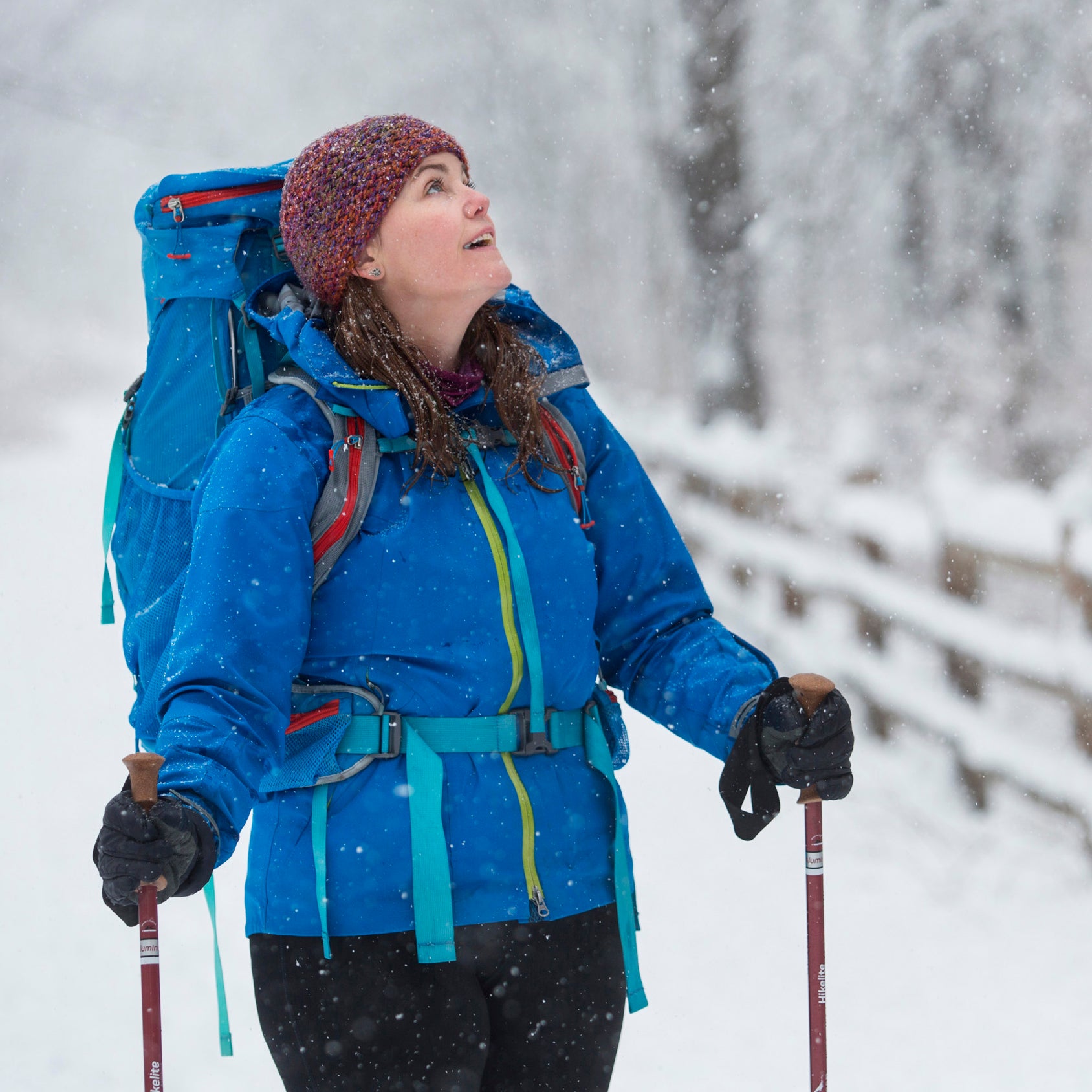It’s just before 7:00 a.m. on March 28 and thumping club music is playing inside a cavernous fitness center in Saco, Maine. On the gym floor, a lone middle-aged guy is languidly shooting hoops. Above him, a half dozen folks churn through their 30 minutes on elliptical trainers and stair machines. The rest of the building is dead: it’s too late for the before-work crowd; too early for the moms who pack their kids off to school.
At the stroke of seven, Tonya Holt races inside with long wet hair and a big smile. Holt, a 40-year-old microbiologist and hospital lab technician, has been up all night packing and barely had time to shower. In just a few hours, she’ll move what little furniture and gear she hasn’t sold or given away into her parents’ spare bedroom. She’ll spend the next few days sleeping on her friend’s couch. A week from now she’ll hop a plane with the 30 pounds worth of possessions that remain, meticulously tucked in a backpack, on her way to .
Holt is a scientist through and through. She can tell you exactly why she chose the shoes and sleeping bag and stove she’s carrying. She joined this gym to train for her hike and has put in slogging treadmill hours with a loaded pack on her back. She is fit: she loves to kayak and plays a lot of tennis. But if you ask her, she’ll tell you she worries she’s a little overweight—that she used to be fitter and trimmer and would very much like to get back to that place. Today, she’s meeting with Anne L'Heureux, a registered dietician specializing in sports health, to understand more about what that hike is going to do to her body—and preparing for how it may impact her mentally.
“I want to think of my body as a machine – a vessel that can do whatever I ask it to do.”
Of the 3,000-plus people who will attempt a thru hike on the AT, fewer than a quarter will finish: some will get hurt; others will run out of money or drive. Holt is doing her best to avoid those pitfalls. She has always thought of herself as an ambitious person: someone with clear goals in her personal and professional life. For most of her adult life, she’s worked in a lab at a local hospital. She married her college sweetheart. They bought a house and a dog. Her life had a routine. A few years ago, a lot of that changed: her marriage ended; her dog died. She found a one-bedroom apartment and changed jobs. In the process, she gained a few more pounds than she would have liked. Her closest relationships seemed to wallow. This was not what 40 years old was supposed to look like, she says.
“Everything felt like a slump. Somehow, I’d gotten off the course I’d set for myself. I thought I would be higher on the career ladder, that’d I’d have a graduate degree and a family. That my life would be defined by big adventures and a lot of love. I realized I didn’t have any of that.” Finishing the trail, she decided, was the way to get it back. And that’s why she’s here in the gym this morning.
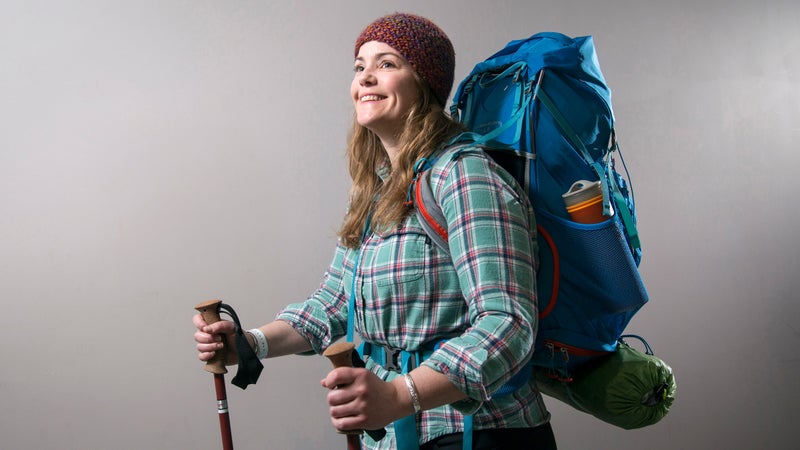
To help her succeed, L’Heureux is going to assess Holt’s body in all kinds of ways that would make an average person squirm: she’s going to measure the circumference of Holt’s belly and thighs, then she’ll use an ultrasound machine to scan Holt’s hips and triceps looking for fat and lean muscle.
“This is about protecting Tonya—at least from a nutritional standpoint,” L’Heureux explains as we walk from the digital scale and into her tiny office. “I don’t just want her to finish the trail, I want her to finish stronger and healthier than she began.”
Holt nods with a nervous smile. She’s a little apprehensive about what L’Heureux’s scan will tell her, but the scientist in her really wants to know. “For me, it’s about peeling back layers,” she says. “It’s about a journey towards the person I want to be. This is part of it.”
Since the Ancient Greeks, everyone from philosophers to mystics to poets have sought enlightenment by walking. Early Christians walked hundreds or even thousands of miles to holy sites as a way to test their faith. Hindus have long since believed that pilgrimages are a way to seek answers to life’s toughest existential questions about our purpose and how to find fulfillment. And if all of these pilgrims are to be believed, it’s not just any walk that will get you closer towards enlightenment: it has to be one you undertake with utter abandon.
Take Henry David Thoreau, who knew a thing or two about trails. In his , he advocated for a very particular type of hiking: what he called sauntering, as in the French sans terre, or without a home. As far as Thoreau was concerned, if we want to take the kind of walk that really counts—the kind of walk that somehow changes us—we first must put all of our affairs in order. Lock up our houses. Be willing not to look back.
Thru-hiking a long, scenic trail is one of the only ways to saunter in the 21st century. Hikes of this sort take about six months—more time than most employers are willing to give. That may be one reason why so many people attempting the country’s long wilderness trails are at either end of the age spectrum: 20-somethings in between school and a first career, or retirees contemplating their next move.
The rest are there because they are ready for a big change in their lives. They’ve lost spouses or children, they’ve returned from wars both literal and metaphoric, they’ve looked up and wondered how the hell they ended up wherever they are. Most have never set foot on the trail. Some have never donned a backpack, or even slept in a tent.
A year or so ago, the became concerned by just how many green hikers were attempting the trail. People were arriving at the start of the trail either loaded down with extraneous gear or with barely enough to get them through a single night. The ATC now sends out ambassadors to Springer and Katahdin—the two mountains that bookend the trail—at the start of the hiking season to conduct voluntary bag shakedowns for new thru-hikers. At the end of each day, there’s always a bin at the trailhead overflowing with everything from silk lingerie to boxes of microwavable macaroni-and-cheese to inflatable two-person rafts. But as technically unprepared as some new hikers might be, they’re ready spiritually. They see in the trail answers to the questions that plague them most, and so they set out anyway, hoping to find answers.
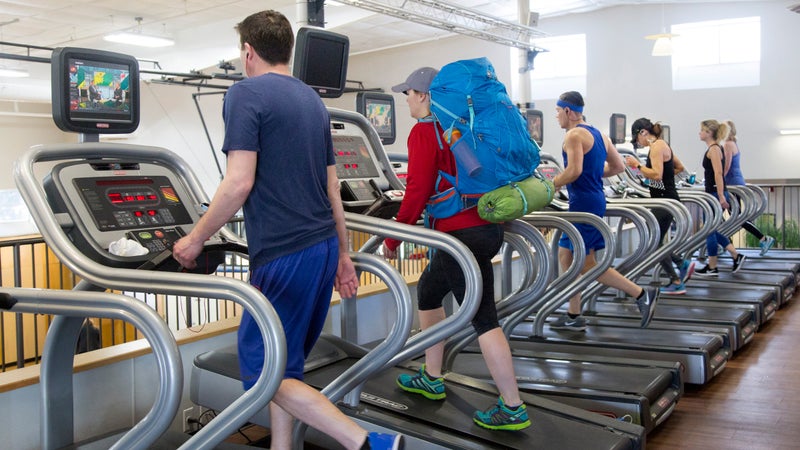
Tonya Holt admits she’s a total backpacking novice. Because she has done her research, her pack would pass even the closest inspection. Nevertheless, she still says she feels like a newbie in a lot of ways. And a lot of people in her life think she’s crazy for heading out at all.
But Holt says the decision felt right for lots of reasons—not because she’d experienced some life-altering tragedy or because her world had become a crisis, but more because it wasn’t fulfilling in the way she really believed it could be. Wilderness, she says, has always been a place of replenishment and comfort for her. She’d lost her connection to it in recent years. She wanted the physical challenge. And all those goals she had set for herself a long time ago – the advancing career, the big love, the family – she still wants those too.
“That’s why I needed to go now,” she says. “You can always take a weekend trip even if you’re working on your PhD or even if you have a family. Carving out six months to hike is an inherently selfish thing to do. I don’t want to be selfish for the rest of my life. I want commitments and responsibility and a full spectrum of all the good things this world has to offer.”
She believes that, to really get there, she first needs to take inventory in a way few people are willing to do. “I looked up one day and thought, I’m on a hamster wheel,” Holt says. “I had lost all sense of what I was carrying with me and why.”
The extra pounds. The job. The possessions she’d accumulated over the years. The relationships she’d formed. She didn’t know what to do with any of it. She didn’t even know whether she wanted any of it any more. “I had to take stock: to find out what brings me joy and what brings me stress. I had to figure out what I’m carrying that I don’t need and what I want to keep because it’s crucial to my survival and my happiness.”
For some people, figuring that out means buying a copy of professional organizer . Holt decided she needed more. She grew up in Western Maine, so she knew all about the Appalachian Trail. She initially planned to just hike —but decided that wasn’t enough. “I wanted to walk my way back home, both literally and metaphorically,” she says. “I wanted to walk towards the me I want to become.”
“For me, it’s about peeling back layers. It’s about a journey towards the person I want to be.”
She says she doesn’t know who that person is yet, but that’s okay. “I do know that I want to have the energy to make myself a better person and make my relationships more fulfilling. In a lot of ways, that’s enough right now.”
There’s a huge physical component to that goal. And that’s why we are crowded in L’Heureux’s office, trying not to feel awkward as the nutritionist asks Holt to strip down to a jog bra so that she can look for belly fat. Holt complies, raising her arms as L’Heureux squeezes cold goo on an ultrasound wand. I’m trying to be unobtrusive, perched unsteadily on a kettlebell, but there’s no real way to do that when you’re inches from this kind of intrusion. And so instead I ask Holt the lamest journalist question out there: I ask her how she feels.
“Exposed,” she says. “Really naked and vulnerable.”
She thinks for a few seconds, as L’Heureux rubs the wand across her stomach.
“But maybe that’s part of it,” Holt eventually says. “Maybe this journey is about exposing the parts of me I’d rather hide. If I can’t see them, I won’t know what needs to be changed.”
Holt and L’Heureux look at the data from the scan as it begins to sort itself into graphs on the office computer screen. The latter points out Holt’s lean muscle mass and asks Holt what she sees.
“I didn’t know I had this much muscle,” she says. “It seems like I have enough to do this.”
“You can totally do this,” says L’Heureux.
No matter how long you take to do it or with what preparation, thru-hiking a long trail is very much an endurance sport.
Ask endurance athletes and their coaches what propels them across all those miles, and most of them will tell you it’s mental toughness. That’s actually a technical term in psychology parlance—so much so, in fact, that there are dozens of quizzes and rubrics scholars use to assess it. The U.S. Military uses one to gauge potential recruits and make promotions. So do corporations and Division I sports teams. Most of these metrics try to tease out psychological characteristics like self-confidence, singleness of focus, and a willingness to push the boundaries of physical and emotional pain.
As technically unprepared as some new hikers might be, they’re ready spiritually. They see in the trail answers to the questions that plague them most, and so they set out anyway, hoping to find answers.
Holt says that’s where she starts to worry. She knows that, regardless of how much research she’s done in preparation for this hike that she still doesn’t really know what will be required for her to complete the journey. She wonders sometimes if she’s tough enough, especially since there’s so much she can’t anticipate—from freak storms to accidents to what might be happening back at home. “The unknowns are what I get paranoid about,” she says. “I tend to think about worse case scenarios. I obsess about what they will be and whether I’ll be able to deal with them.”
It’s easy to assume that the people who don’t finish the trail didn’t train or prepare properly, and that the ones who do complete the trail are the ones with mental toughness in spades: the willingness to propel themselves mile after mile, through any weather or physical malady. That’s what Vista Beasley assumed for years. A long-time endurance athlete and AT thru-hiker herself, she’s spent the past three years studying these individuals as part of her doctoral work in sport psychology at the University of Stirling in Scotland.
For most of her life, Beasley pushed through miles because she assumed that’s what endurance athletes had to do. Along the way, she did a ton of damage to her knees. That got her thinking. “My personal experience is that I had too much mental toughness and pushed through and now I’m personally hobbled,” says Beasley. “I had a sense that mental toughness predicts a little bit in endurance pursuits, but that we were missing the fact that people who push through also end up getting injured.”
Over the course of two trail seasons, she surveyed hundreds of people attempting thru hikes. She asked them about their reasons for hiking, and assessed their social identity and their mental toughness. What she discovered defied conventional thinking. It wasn’t a hiker’s experience or physical condition that ensured their success. It wasn’t their level of preparation. It wasn’t a dedication to a noble cause or even a commitment to just enjoying the hike (though hikers in that last camp have less chance of overuse injuries). And it definitely wasn’t their mental toughness.
“I think the most counter-intuitive of my findings in relation to success is that high levels of mental toughness predicted less success, less chance of completing a thru-hike. It also predicted more serious overuse injury, which may explain why those with high mental toughness were found to be less successful.”
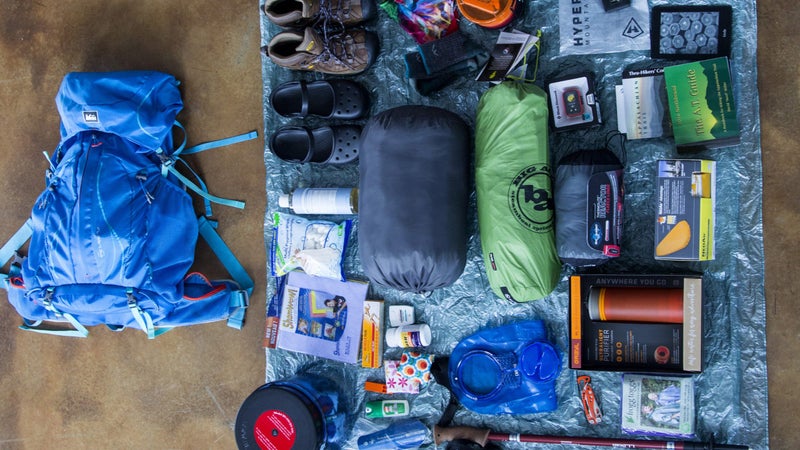
The best hikers, she says, are the ones that come with a little bit of everything – a little toughness, a little hedonism, a little susceptibility peer pressure. And if there is one trait successful hikers share, says Beasley, it’s definitely a willingness to adapt. “You have to be willing to switch up your gear, to take some low mileage or even zero days when you start to feel pain coming on.”
But while nutrition and good gear are obviously essential, it’s not the physical component of a thru-hike that most weighs on thru-hikers. When surveyed, those who attempted the trail told Beasley that the psychological aspects challenged them most. The second most cited hurdle was what Beasley categorized as “others,” which is to say that dealing with other people proves difficult for a lot of hikers.
“It’s fascinating when you think of how ‘others’ are also a major for of support, emotional and otherwise,” says Beasley.
Holt thinks a lot about those kinds of relationships. She’s leaving her parents behind, along with her best friend—a newly widowed dad—and his three daughters to do this hike. She’s hopeful she’ll find a companion or two on the trail so that she isn’t doing it all alone. “It’s bittersweet,” she says, “I’ll be in a kind of community, but not with the people I love. I guess that’s also part of the practice of letting go.”
Holt knows she’s going to have to be adaptable. That these first days are going to be slow and hard, that she may not get very far on some days. She and L’Heureux already predict that she’s going to make some big changes in terms of what she’s carrying: that the food she eats by the time she hits Maine won’t be what propelled her through the south. That maybe her old sleeping bag or the bracelet her friend gave her won’t serve her at some point.
She says she has no idea if she’ll return to her job and her native Maine when she finishes her trek, or whether this hike will be launch a whole new chapter for her. That’s okay, too.
“The whole goal here is about realizing what I can let go of that I don’t need anymore,” says Holt. “I’m excited to see what I still have at the end.”

